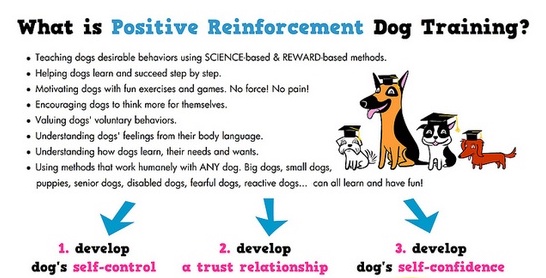
Building Bonds: Positive Reinforcement Puppy Training in the Philippines
Introduction:
Welcoming a puppy into your home is a joyous occasion, but it also comes with the responsibility of shaping their behavior and fostering a strong bond. Positive reinforcement training offers a gentle and effective approach to teaching puppies desired behaviors while strengthening the connection between owners and their furry companions. In the context of the Philippines, where cultural nuances and environmental factors influence pet ownership, tailoring positive reinforcement techniques becomes essential for successful training and relationship-building.
Understanding Positive Reinforcement Training Principles:
Positive reinforcement training relies on the principle of rewarding desired behaviors to encourage their repetition. By associating good behaviors with rewards such as treats, praise, or play, puppies learn to make positive associations and willingly perform these behaviors in the future. This method is not only effective but also promotes a nurturing and respectful relationship between owners and their puppies.
Benefits of Positive Reinforcement Training for Puppies:
Positive reinforcement training offers numerous benefits for puppies’ learning and development. Unlike punishment-based methods, which can lead to fear and anxiety, positive reinforcement creates a safe and enjoyable learning environment. Puppies are more motivated to learn and eager to engage in training sessions when they associate them with positive experiences. Moreover, positive reinforcement strengthens the bond between owners and their puppies, fostering trust and cooperation.
Tailoring Positive Reinforcement Techniques to the Filipino Context:
In the Philippines, where pet ownership is deeply ingrained in the culture, positive reinforcement techniques can be adapted to suit local customs and lifestyles. For example, Filipino households often value harmony and respect, making gentle and patient training methods particularly suitable. Additionally, considering the tropical climate, indoor training activities may be preferred to outdoor exercises, ensuring both comfort and effectiveness.
Creating a Positive Training Environment at Home:
Setting up a positive training environment at home is crucial for successful puppy training. Designate a quiet and distraction-free space for training sessions, away from loud noises or other pets. Use high-value treats and toys to motivate your puppy, and maintain a positive and encouraging demeanor throughout the training process. Consistency and patience are key to building a strong foundation for obedience and behavior.
Essential Commands to Teach Your Puppy Using Positive Reinforcement:
Teaching essential obedience commands such as sit, stay, and come lays the groundwork for a well-behaved and responsive puppy. Through positive reinforcement techniques, puppies quickly learn to associate these commands with rewards and eagerly comply with them. For example, by rewarding your puppy with a treat every time they sit on command, you reinforce the behavior and encourage them to repeat it in the future.
Socialization Strategies for Filipino Puppies:
Socialization is essential for puppies to develop into well-adjusted and confident dogs. In the Philippines, where dogs encounter diverse environments and interactions, early socialization is particularly important. Introduce your puppy to various people, dogs, and environments gradually, using positive reinforcement to create positive associations. This ensures that your puppy grows up to be friendly, confident, and comfortable in different situations.
Addressing Common Puppy Behavior Issues with Positive Reinforcement:
Puppies may exhibit common behavior issues such as chewing, biting, or jumping, which can be addressed effectively through positive reinforcement training. For example, redirecting your puppy’s chewing behavior to appropriate chew toys and rewarding calm behavior can help curb destructive chewing habits. Similarly, teaching your puppy to sit for attention instead of jumping up on people reinforces polite greetings.
Incorporating Enrichment Activities into Positive Reinforcement Training:
In addition to obedience training, incorporating enrichment activities into your puppy’s routine is essential for mental stimulation and overall well-being. Puzzle toys, scent games, and interactive feeding toys provide mental challenges and prevent boredom. By integrating these activities into positive reinforcement training sessions, you keep your puppy engaged and motivated to learn.
Maintaining Consistency and Patience in Positive Reinforcement Training:
Consistency and patience are the cornerstones of successful positive reinforcement training. Establish clear expectations and stick to a regular training schedule to reinforce desired behaviors consistently. Be patient with your puppy’s progress, understanding that learning takes time and repetition. Celebrate small victories and remain positive and encouraging throughout the training journey.
Seeking Professional Guidance for Positive Reinforcement Training in the Philippines:
While positive reinforcement training can be highly effective when done correctly, some situations may require professional guidance. If you encounter challenges or behavioral issues beyond your expertise, consider seeking help from a certified dog trainer or behaviorist specializing in positive reinforcement methods. They can provide personalized guidance and support to address your puppy’s specific needs effectively.
Conclusion:
Positive reinforcement puppy training offers a gentle yet powerful approach to shaping behavior and building bonds in the Philippines. By understanding the principles of positive reinforcement, tailoring techniques to the local context, and maintaining consistency and patience, owners can effectively train their puppies while nurturing a strong and enduring bond. Embrace positive reinforcement as a way to create a harmonious and fulfilling relationship with your furry companion, laying the groundwork for a lifetime of happiness and cooperation.
No Comments Yet